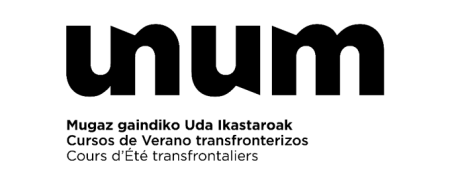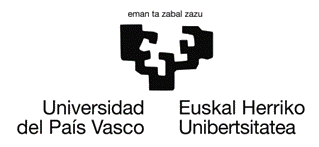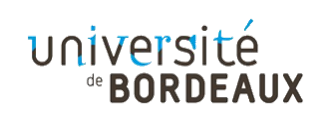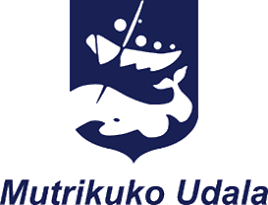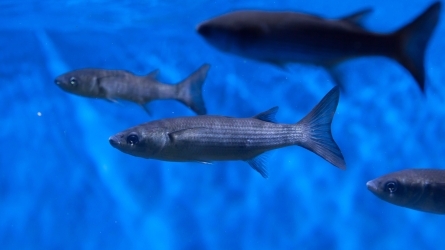
Acuicultura sostenible con nuevas especies de peces en Euskadi: el muble o korkon / Las energías marinas, retos hacia la transición energética
Esta actividad abierta y gratuita se enmarca en el Curso de Verano "Una universidad que mira al mar: navegando por el conocimiento en el buque escuela Saltillo"
Description
MANU SOTO
Today's growing demand for food requires new approaches. Aquaculture complements fisheries and is geared towards sustainable growth where new species become part of our ecosystem to face the new challenges we are encountering.
Aquaculture and fisheries are two complementary activities that have to cope with today's growing food demand. However, the situation of both activities is different, since while the challenges of aquaculture are oriented towards sustainable growth and consolidation as an activity with an excellent future projection for feeding people, fishing sometimes has to stay below a production ceiling that has been temporarily exceeded. For aquaculture to become a key strategic line of sustainable food, research and investment in aquaculture must be renewed to produce more products and create new economic activities and employment. In the Basque Country, different institutions have been working together over the last few years to develop a sustainable system of mullets breeding, analysing everything from the closure of the life cycle to determining the optimum conditions for their farming. It is a promising activity that can pay off in the short term.
JON LEKUBE
The development of renewable energies will be essential in the coming decades for two fundamental reasons: climate change and energy dependence. On this path, the effort to exploit new sources of energy will be essential, and in this context it is expected that marine energies will play an important role. This will require not only the full development of the technology currently available, but also paying attention to other important aspects such as environmental impact, planning and management of the marine environment for new uses, the creation of new infrastructure and jobs... Being able to provide an adequate response to all these challenges in the coming years is currently one of the main objectives of the marine energy sector.
Activity directed to
- All public
Contributors
Program
19-07-2022
Registro / Erregistroa
Lecture
Acuicultura sostenible con nuevas especies de peces en Euskadi: el muble o korkon
- Manuel Soto Lopez | UPV/EHU - Subdirector
Las energías marinas, retos hacia la transición energética
- Jon Lekube Garagarza | Ente Vasco de la Energía (EVE), Área de Energías Renovables y Aprovechamiento de Recursos – UPV/EHU, - Departamento de Ingeniería de Sistemas y Automática
Mutrikuko olatu plantara bisita gidatua / Visita guiada a la planta undimotriz de Mutriku (plaza mugatuak - plazas limitadas)
Speakers
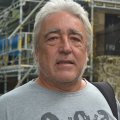
Manuel Soto Lopez
Professor of Cell Biology (UPV/ EHU, 2011). Deputy Director of Research Centre for Experimental Marine Biology and Biotechnology (Plentzia Marine Station) in the University of the Basque Country (2012-). Researcher in the Consolidated Research Group Cell Biology in Environmental Toxicology (CBET). The CBET group develops since 1983 research and teaching activities within environmental toxicology. Pre and postdoctoral research studies in: Univ of Wales (Aberystwyth), Univ Innsbruck (Austria), Univ Azores (Portugal) and University of Wales (Cardiff). He has supervised 7 PhDs and 3 in progress. Interests on the development and application of biomarkers of effect against exposure to metals in aquatic and terrestrial organisms (earthworms, molluscs, polychaetes, fishes), cellular localization and quantification of metal ions, molecular probes in target cellular compartments, and the transit of metals (aqueous forms, massive forms and nanoparticles), plastics and other contaminants.

Jon Lekube Garagarza
Ingeniero de Telecomunicaciones por la Universidad del País Vasco (UPV/EHU, 2012), también realizó estudios de Máster en Integración de las Energías Renovables en el Sistema Eléctrico (UPV/EHU, 2014) y Doctorado en Ingeniería de Control, Automatización y Robótica (UPV/EHU, 2018). Su tesis se centró principalmente en la mejora de las estrategias de control en convertidores de energía de las olas basados en columna de agua oscilante (OWC). En 2017 se incorporó al Ente Vasco de la Energía (EVE) donde trabaja en el Área de Energías Renovables y Aprovechamiento de Recursos. Ha participado en proyectos europeos como nacionales más relevantes en el ámbito de las energías marinas y actualmente es responsable de la Planta de Olas de Mutriku, un proyecto de demostración pionero a nivel mundial que además de aprovechar la energía de las olas también permite probar nuevos dispositivos con el fin de avanzar en la tecnología. También es Profesor Asociado en la UPV/EHU en el Departamento de Ingeniería de Sistemas y Automática.
Venue
Zabiel Kultur Etxea
Erdikokale Kalea, 28, 20830 Mutriku, Gipuzkoa
Gipuzkoa
Zabiel Kultur Etxea
Erdikokale Kalea, 28, 20830 Mutriku, Gipuzkoa
Gipuzkoa
